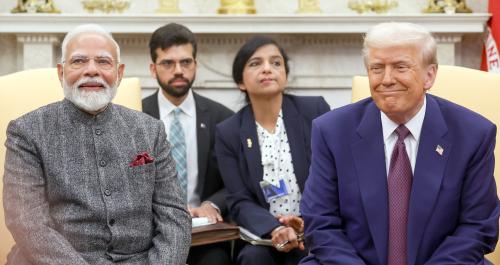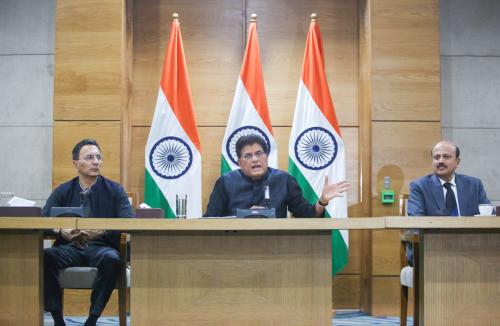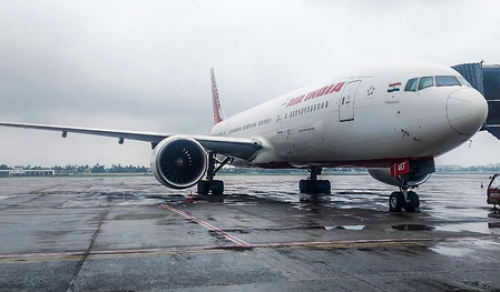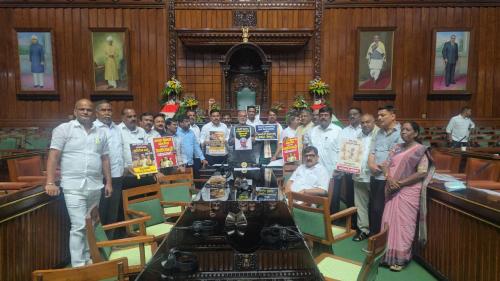New Delhi, June 7 (IANS) Indias crippling second wave of Covid-19 may be getting all of the attention now, but it is critical that we do not overlook the silent but deadly killer that has emerged as the leading cause of death over the last two decades. More than 5.8 million Indians die every year from Non-Communicable Diseases (NCDs) such as cancer, diabetes, uncontrolled hypertension and cardiovascular diseases. Most of these deadly diseases, although hard to treat, can be prevented by modifying diets and supporting a healthier, sustainable food system. As is the case with other developing economies, there has been a significant boom in the consumption of packaged foods, usually high in sugar, salt and bad fats, even in the rural areas and across all socio-economic groups. With this boom, it becomes critical to more strictly regulate the three harmful ingredients that are rampant in packaged foods and are fueling the NCD crisis. Breastfeeding Promotion Network of India (BPNI) along with the Nutrition Advocacy in Public Interest (NAPi), Epidemiological Foundation of India (EFI) and Pediatrics and Adolescent Nutrition Society (PAN) organised a webinar to discuss the importance of a strong Nutrient Profile Model (NPM) to guide consumption of processed and ultra-processed food in India. Leading global experts, doctors and senior scientists discussed the need for a consensus particularly in light of obstacles such as opposition from the food industry. Brazil, Mexico and South Africa, by adopting scientific thresholds for these ingredients -salt, sugar and fats - have taken decisive steps to safeguard their population, especially children. Nutrient profiling is a scientific method for categorizing food and beverage items according to their nutritional composition. It is developed with the key goals of reducing consumption of sodium, saturated fat and added sugar. Nutrition profile models (NPM) translate these broad goals into specific food and beverage targets and helps us to identify and differentiate foods that are unhealthy (high in salt, sugar, and/or saturated fats). Based on the "cut off" established by the NPM, the front-of-pack label informs consumers in a fast and straightforward way whether a product contains excessive sugar, sodium and saturated fat, helping them make a healthier choice. At the same time NPM can guide ban on promotion and marketing, especially directed to children and adolescents. Stressing on the importance of acting swiftly but not deviating from the science that informs the setting of these thresholds, global expert Professor Carlos A. Monteiro, Professor of Nutrition and Public Health at the School of Public Health, University of Sao Paulo, Brazil, and who heads the Center for Epidemiological Studies in Health and Nutrition, said, "NPMs are frameworks developed after much research and field level studies by the WHO and experts from all over the world." Prof Monteiro who was instrumental in developing the NOVA classification and the NPM model for Latin America, considered a best practice in grouping processed food, further added, "The WHO SEARO model was put together in consultation with member countries in the region and is perfectly aligned to the Codex Alimentarius or food code. Simply put, there has never been a better time for India to announce and mandate these limits in packaged foods and beverages. Concerned about the growing levels of obesity, Brazil imposed medically proven thresholds and mandated our food industry to comply. It is high time that India should do the same. Slowly but surely, over the last few decades, ultra-processed food is taking over the dietary preferences and buying decisions of consumers in India. Analysis of sales data reveals that per capita sales of ultra-processed foods grew from about 2 Kg in 2005, to about 6kg in 2019 and is projected to grow to about 8 kg by 2024. Similarly, ultra-processed beverages are up from 2 L in 2005 to about 6.5 L in 2019 and are projected to be about 10 L in 2024. Dr. Arun Gupta, Convenor, Breastfeeding Promotion Network of India (BPNI) warned that this exponential growth of the "junk" or processed food industry has left an indelible mark on the health of Indians. "We are now the obesity and diabetes epicentre of the world. Cancer rates are growing at an alarming pace. Younger people are at risk of heart disease. The ongoing pandemic has demonstrated beyond any doubt, the debilitating role that comorbidities have played in Covid-19 fatalities. An NPM that is able to adequately distinguish between healthy and unhealthy foods can guide all food and nutrition regulatory policies, particularly related to correctly identifying foods with excessive amounts of potentially harmful nutrients such as sugar, fats and sodium, and help people make good food choices during these challenging times" The path to adopting scientific limits on these anti-nutrients will not be easy, warns Mr Keshav Desiraju, former Health Secretary of India. "Regulators and policymakers must lay down mandatory thresholds which are within the limits as prescribed by WHO. As these will apply across the board, we can be sure that the entire market will adapt to meet the new standards. Industry is used to making profits and will not comply unless our food and beverage regulators make it mandatory." Experts believe that a simple Nutrient Profile Model with single nutrient thresholds for two categories - food and beverages, works best. The single threshold nutrient profile model has been the most effective solution for implementing and monitoring the front of package label policy (FOPL). Countries such as Chile, Israel and Mexico with robust FOPL policies have adapted models with a single nutrient threshold. Emphasising on the need for a scientific yet simple approach, Prof. H.P.S. Sachdev said, "To protect the health of our future generations and to reverse the worrying trends of obesity and other NCDs, we have to arm people, including children with information regarding high concentration of salt, sugar and fats in all packaged foods. Hence a science based NPM leading the way to a simple warning label, should be our immediate priority". In 2018 the Food Safety Standards Authority India (FSSAI) published draft regulation for FOPL which was subsequently withdrawn for further deliberation. In 2019 December, FSSAI delinked FOPL from general labelling regulations and is currently seeking consultations with civil society, industry and nutrition experts for a viable model for India. Extensive research regarding the appropriate ecut offs' for nutrients of concern have already taken place, including a recent study by National Institute of Nutrition which corroborates the limits on salt, sugar and fats set by WHO.
Mandatory salt-sugar-fat 'cut offs' if India to prevent NCD crisis
- by Rinku
- June 07, 2021 2 minutes

Coronavirus (File Photo: IANS)











